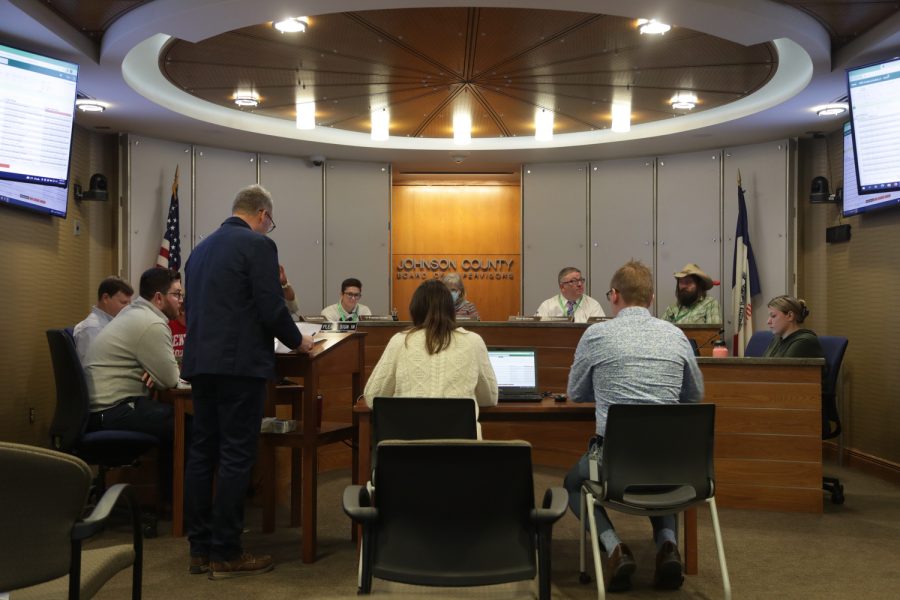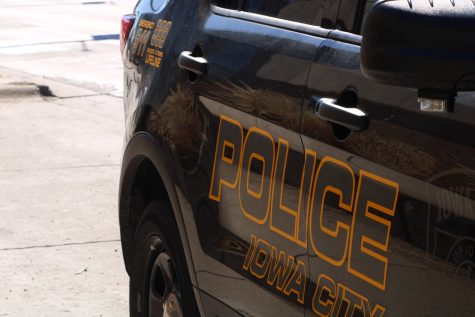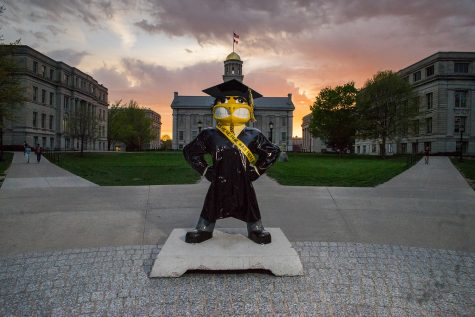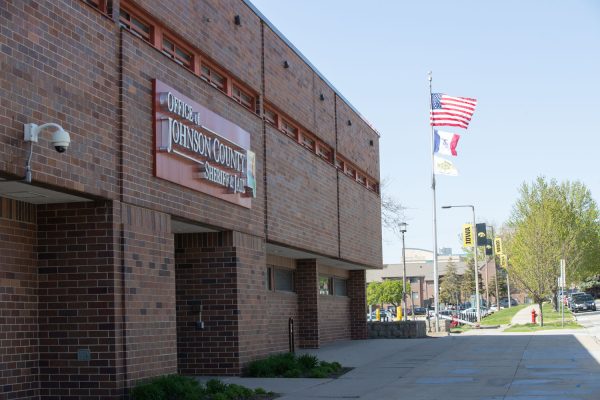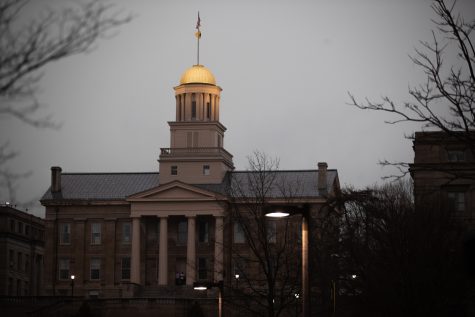Johnson County budget discussions to continue after new state law passed in February
The bill, Senate File 181, fixed an error relating to how residential properties are valued, although it means counties will have to redo parts of their budget due to the new valuations.
The Johnson County Board of Supervisors listen to speakers during a Board of Superviors meeting in the Johnson County Administration Building in Iowa City.
March 9, 2023
After a bill from the Iowa legislature was passed on Feb. 20 affecting property taxes, the Johnson County Board of Supervisors released a new budget timeline for the county at its work session meeting on March 1.
The bill from the legislature, Senate File 181, was passed to fix an error the state made in how residential properties are valued for taxes. In passing the bill, counties now have to revalue properties as a result of the rollback.
During the March 1 work session, Johnson County finance director Dana Aschenbrenner said the county normally would have already had its budget estimate done and approved its tax askings. Instead, the county must now go back and redo parts of its budget.
“This is going to require us to go back to the beginning as far as the certification and proposal process, so my understanding is all this will do is basically lower our taxable value countywide,” Aschenbrenner said.
In an email to The Daily Iowan, Aschenbrenner clarified how the new law would affect the county.
“This new law will lower the amount of taxable value in that specific property class (because of a lower rollback percentage) and the county’s overall taxable value total will fall by that same overall [dollar] amount of reduction. If nothing else changes (proposed tax askings, proposed expenditure budget) then this will result in a higher levy rate for each taxing fund of the county,” he wrote.
RELATED: Johnson County supervisors voice concerns over proposed bills in the Iowa legislature
He also stated he didn’t anticipate the new law to have much of an effect on the county’s proposed budget and that the county is in a good position where it shouldn’t be too affected in general.
During the meeting, a proposed budget meeting schedule was shown to the supervisors. According to the schedule, the county would have approved publishing its budget estimate on Feb. 23, followed by a budget estimate hearing on March 14.
The county would have ended its budget discussions with final budget resolutions on March 23, where it would also have formally voted on it.
Under the proposed schedule, the county will now begin its new budget discussions at the March 8 formal meeting, where the supervisors will consider publishing the county’s proposed tax asking notice. The supervisors will also set a public hearing date, with the schedule suggesting March 29.
From there, the county will use the meetings occurring between March 29 to April 26 to continue and finalize budget discussions, ending with a formal vote on April 27.
One issue the supervisors commented on during the March 1 meeting was the deadline for the county’s secondary roads department’s budget. Although the new law has a new deadline for counties to submit their budgets, the deadline for secondary roads remains the same with its April 15 deadline.
Responding to a question from Supervisor V Fixmer-Oraiz about the different deadlines, County Attorney Rachel Zimmermann Smith said the supervisors would still have to approve the secondary roads budget by April 15.
“D.O.T. is not changing the deadline, so the supervisors are still required to approve a budget for secondary roads by April 15. That still says ‘You shall approve,’ so since it sounds like nothing’s really changing, that shouldn’t be a huge problem, but that April 15 deadline still stands,” Zimmermann Smith said.



